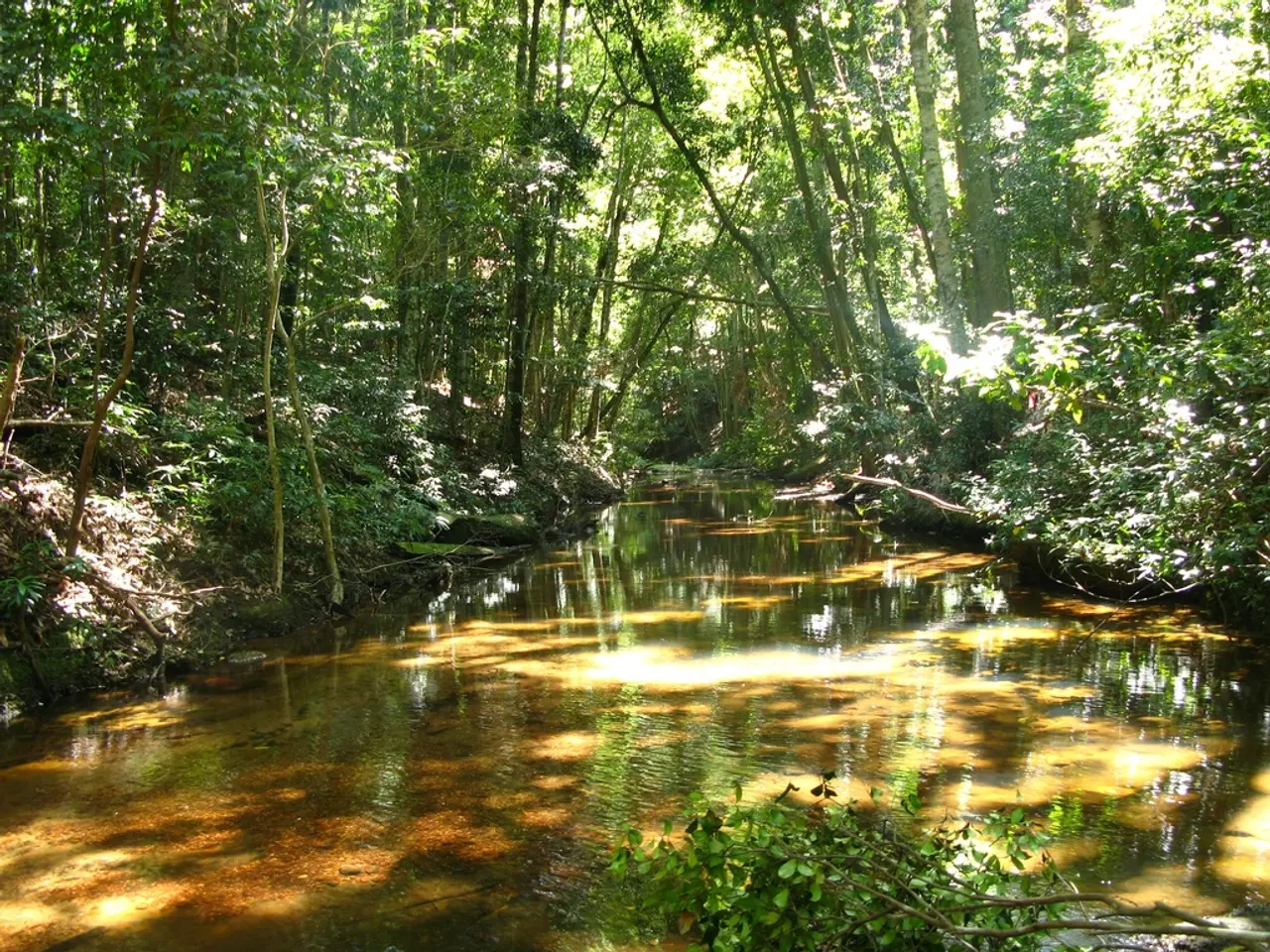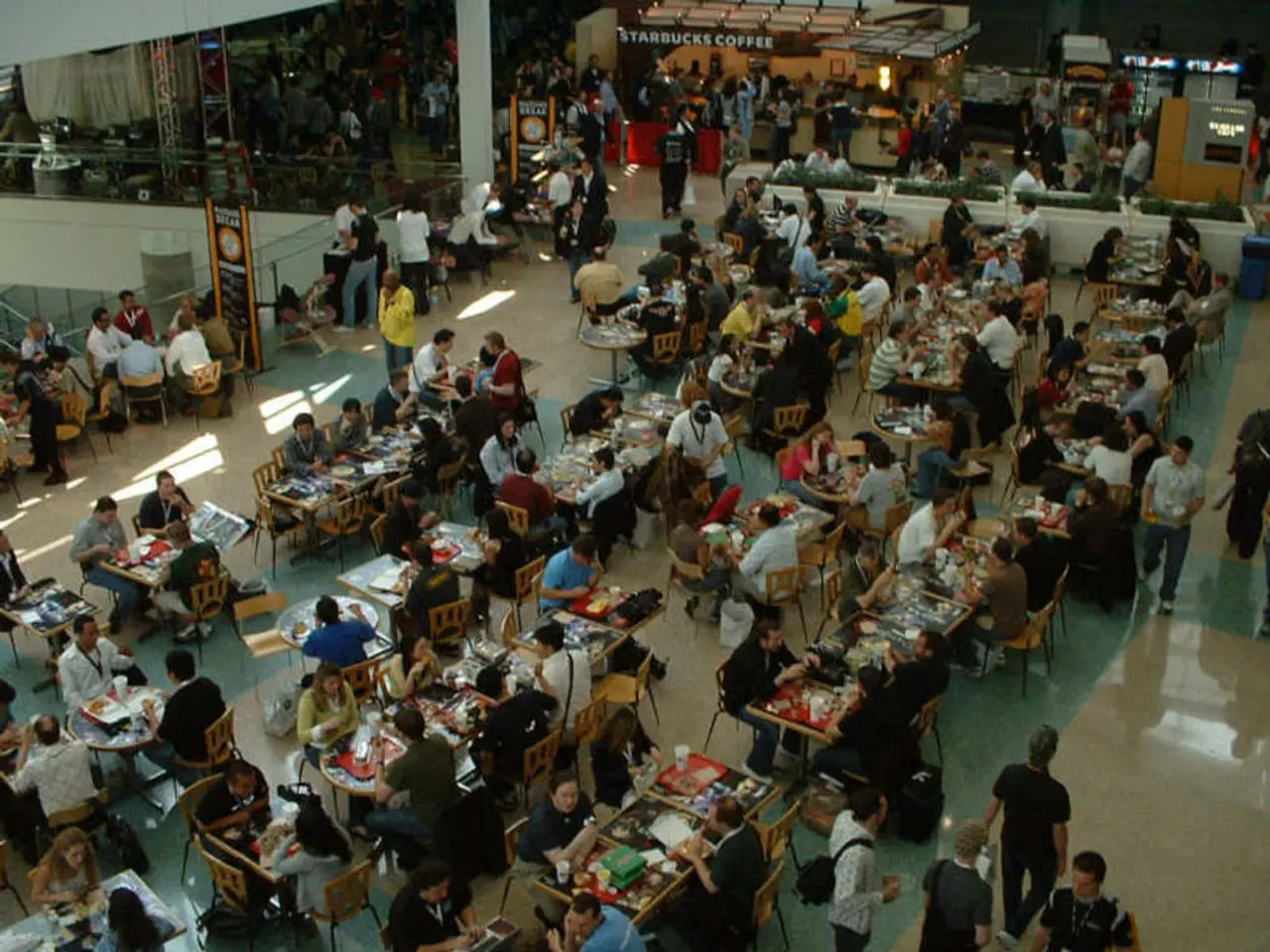Urgent Call for Expanding GDWS Workforce to Maintain Efficient Operation of the North Baltic Canal (Kiel-Canal)
In a recent development, the Kiel Canal Initiative e.V., an organisation dedicated to the operational sustainability and future viability of the Nord-Ostsee-Kanal (North-East Sea Canal, or NOK), has called upon the federal government to increase staff at the General Directorate of Waterways and Shipping (GDWS). This move is aimed at ensuring adequate staffing and operational capacity for the canal, which is a crucial lifeline for the maritime economy in Germany and Europe.
The demand comes amidst concerns about staff shortages at the GDWS, particularly among technical specialists. These shortages have already led to temporary lock closures in Kiel-Holtenau, causing delays in lock operations that have negative impacts locally and internationally. Delays in maintenance and repair work at the NOK also carry the risk of longer downtimes that have negative impacts on shipping companies and jobs associated with the canal.
The Kiel Canal Initiative e.V. has been advocating for the reinforcement of the NOK as a vital European transport artery. They find it regrettable that the annual submission of staff quotas to the GDWS is not permitted. Instead, they are in dialogue with shipping companies to find a sustainable solution for staff shortages.
Ensuring adequate staffing is a crucial step in securing the future of the NOK. The canal is the shortest connection between the North and Baltic Seas, enabling swift, cost-effective, and more climate-neutral transport routes. Without sufficient specialist staff, swift and efficient handling of maritime traffic at the NOK cannot be guaranteed, potentially affecting its international competitiveness.
The Kiel Canal Initiative e.V. includes numerous companies, several chambers of commerce, public law corporations, institutions, associations, clubs, and regional authorities as its members. Jens B. Knudsen, chairman of the Kiel Canal Initiative e.V., has warned about the future viability of the NOK due to staff shortages at the GDWS. He can be contacted at [email protected] for further information.
While the GDWS in Germany operates nine traffic control centers monitoring and regulating maritime traffic, examples of a civilian maritime authority addressing operational challenges through inter-agency collaboration rather than solely by internal staffing adjustments can be seen in the Directorate General of Shipping (DG Shipping) in India. However, specific data on GDWS staff shortages or their direct effect on the NOK are currently not available.
A study on the macroeconomic benefits of the NOK by IfW can be found at this link: Link. For precise information, official releases or reports from the GDWS or relevant maritime authorities would be the best source.
In conclusion, the Kiel Canal Initiative e.V.'s call for an immediate increase in technical staff at the GDWS, including lock keepers, is a timely reminder of the importance of the NOK for Germany's and Europe's maritime economy. The initiative's efforts to ensure the canal's operational capacity and future viability are commendable and serve as a model for other waterway authorities facing similar challenges.
- To maintain the international competitiveness of the Kiel Canal, it's essential to ensure staffing adequacy, especially among technical specialists, as inadequate staffing can lead to delays and potential risks in maintenance and repair work, which may affect shipping companies and related jobs.
- The future viability of the Kiel Canal is also tied to its role as a vital European transport artery in the finance, industry, and transportation sectors. The initiative's advocacy for increased staff at the GDWS can help secure swift, cost-effective, and climate-neutral transport routes, ensuring the canal's operational sustainability and long-term viability.




